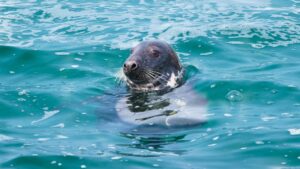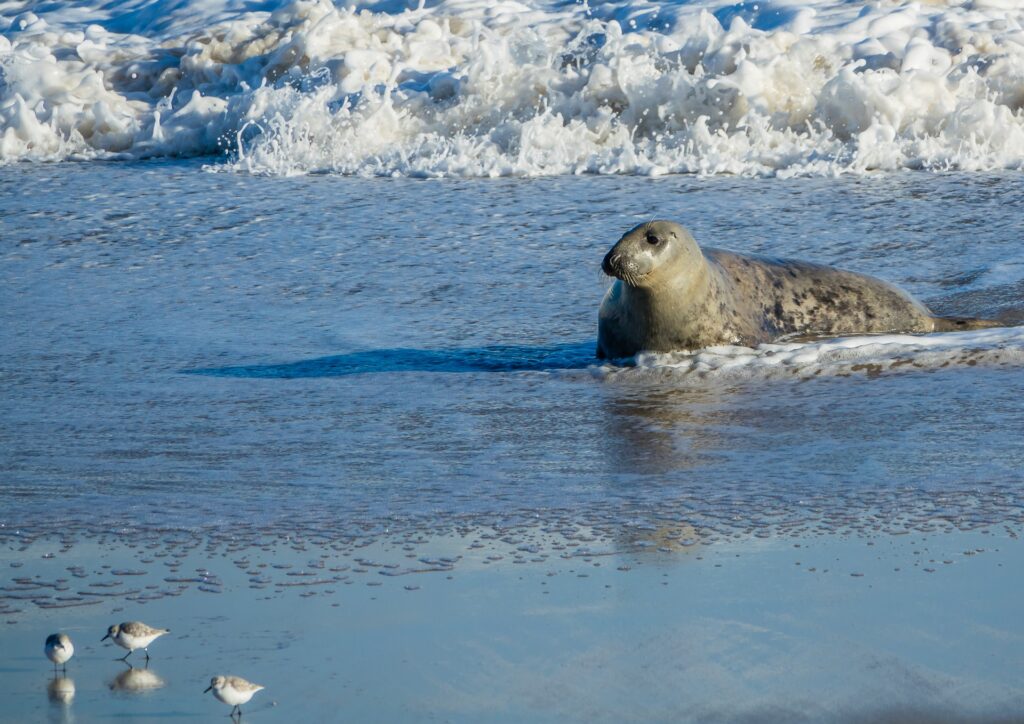
Backlash after Cornish fishermen call for seal cull

Marine conservation groups have hit back after a group of Cornish fishermen called for a cull of seals.
In a now-deleted post on Facebook, the Cornish Mackerel Fishermen community page posted a graphic that stated ‘for every fish caught by our fisheries, seals eat 53 times more’. The post, which did not include a source for the statistic, was captioned: ‘They need a cull!’
When the post attracted criticism from commenters, the Cornish Mackerel Fishermen group doubled down in a follow-up statement. ‘What a bunch of keyboard warriors you are!’ a spokesperson said. ‘This page is for line fishermen, which is the most eco-friendly way of fishing. Line fishermen do not support super trawlers or ring netters in any way … There’s a real problem with the seal population around the UK as they have no predators anymore. All you lot see is cute furry labrador looking animals when in fact they are like the rats of the sea!’
The Cornish fishers group’s comments have been condemned by volunteer pressure group The Blue Planet Society.
Cannot believe a UK commercial fishing page thinks it is acceptable to post this Canadian propaganda and call for a seal cull.
— Blue Planet Society (@Seasaver) April 24, 2022
It’s likely that seals — through tourism-related activities — contribute more to the UK economy than the fishing industry does. pic.twitter.com/JPFtpUEcP9
In a Twitter thread responding to the original call for a cull, a Blue Planet Society spokesperson said: ‘Cannot believe that anyone finds it acceptable to post this and call for a seal cull. It’s likely that seals – through tourism-related activities – contribute more to the UK economy than the fishing industry does.
‘It was Cornish Mackerel Fishermen that called for the seal cull. And here we were thinking that line-caught fish from small-scale fisheries was the sustainable choice. Please keep this thread in mind next time you see the label ‘Cornish Mackerel’.’
There is little evidence of seals having a significant impact on fish stocks, according to scientific reports. One study conducted in Ireland in 2015 concludes that seals mainly eat smaller species of fish, which are illegal for commercial fishers to take.
A 2010 European Parliament paper entitled Seals and Fish Stocks in Scottish Waters found that: ‘The diets of both species of seals overlap with commercial fisheries but exploitation rates of fish species by seals are much lower than they are for fisheries.’
The paper states that: ‘Even a large reduction in the number of seals in Scottish waters would be unlikely to make any noticeable impact to the success of demersal or pelagic fisheries.’
The paper also estimated that seabirds eat around twice as many fish as seals do in Scottish waters, while cetaceans such as dolphins and minke whales eat around the same amount as seals.

A seal in Winterton-on-Sea, Great Yarmouth, UK
Marine conservation charity Seal Rescue Ireland argues that it is a ‘misconception’ that seals are the most prominent threat to coastal fisheries, when ultimately, seals play an essential role in sustaining the health of the oceans on which the industry depends. Seals help to regulate prey populations, keeping the food web in balance, and also recycle both macro and micronutrients by returning massive amounts of nutrients through excrement, feeding plankton and other consumers up the food chain to humans.
The charity points out that, because seals are larger and more visible than other marine predators, they are often targeted as a major threat to the livelihoods of small-scale fishermen.
